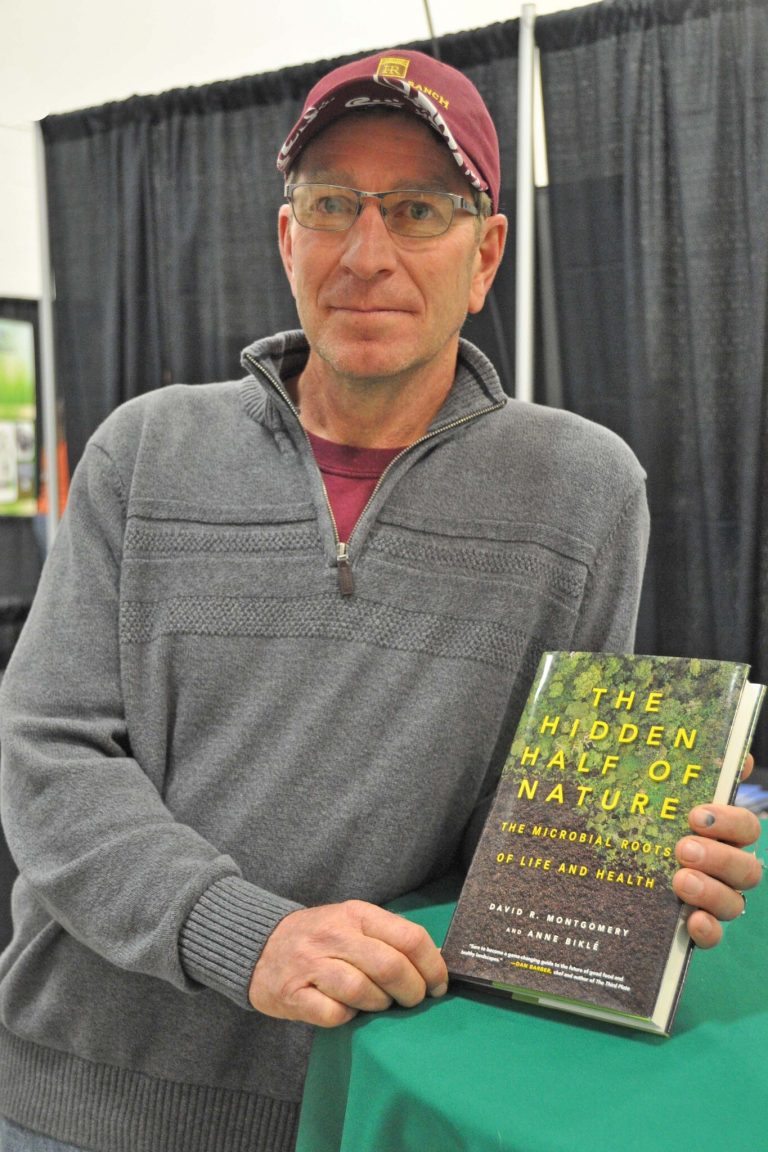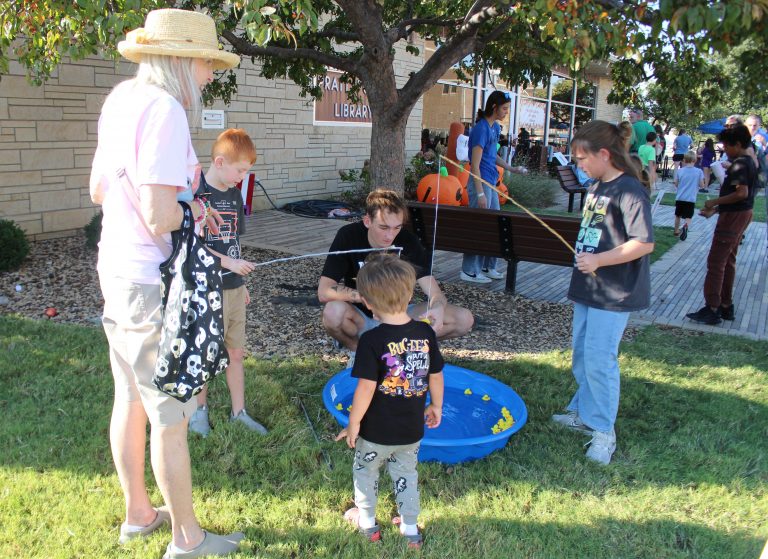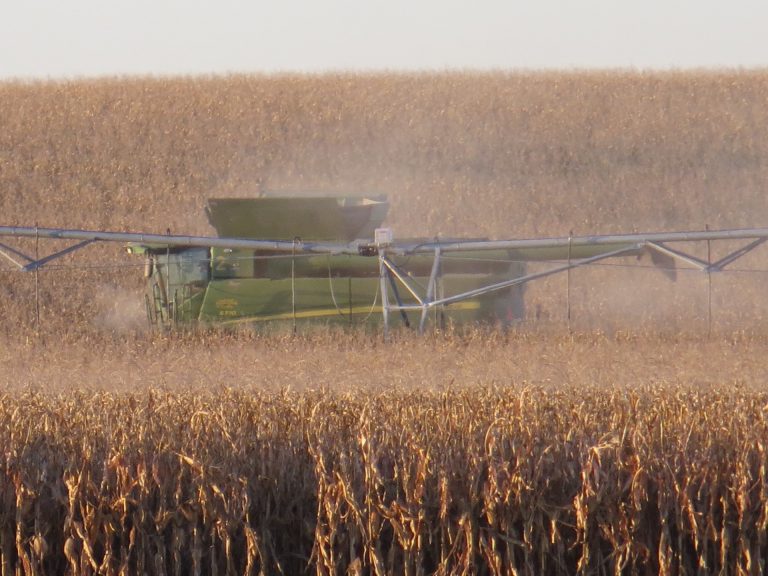By Candace Krebs
CherryRoadMedia
Freelance Writer
Extreme weather and financial stress are two big factors affecting mental health among farmers, and the two are often intertwined.
During the drought of 2012, eastern Kansas regenerative farming pioneer Gail Fuller had a crop insurance claim denied that ended up nearly costing him the farm. He won his case against the federal Risk Management Agency, but only after a 20-month appeals process during which he lost his operating line at the bank and was forced to finance his 3,200-acre operation by selling off cows and other assets.
Fuller shared his personal story of being on an emotional rollercoaster at the annual convention of Kansas Farmers Union, held in Lawrence in mid-November.
The convention also included discussions about climate change and the need to conserve groundwater resources, and how those issues are tied to the competing pressure farmers feel to be productive and keep their farms solvent.
Independent documentary filmmaker Dan Kendall, along with Rex Buchanan, director emeritus of the Kansas Geological Survey, kicked off the meeting with an interactive discussion based on Kendall’s film Hot Times in the Heartland.
Flint Hills rancher Pete Ferrell, who keeps his own weather records, observed that average annual rainfall hasn’t changed much. What has changed is timing. Over the last 14 years, his Beaumont ranch gets 10 percent more rain in May, but 40 percent less in June, when it’s needed to grow summer pasture. Among other strategies, he’s doing less spring burning to conserve grass.
In the film, John Blair, director of the Konza Prairie near Manhattan, recommends preparing for increasingly heavy downpours by designing landscapes to better manage runoff.
NFU president Donn Teske, a farmer from Wheaton, highlighted the cost of extreme weather to society as a whole.
“The insurance industry is in chaos right now. Billions of dollars have been lost,” he said. “When does it get to the point where we can’t afford to buy property insurance anymore? Will we have to subsidize it on the federal level like we do crop insurance?”
Attendees also heard from anthropologist and fifth generation Kansan Lucas Bessire, author of Running Out: In Search of Water on the High Plains. His book explores how pumping water to grow crops is tied to self-respect and “what it means to be a good man” in farm culture.
His great-grandfather was an early adopter of deep-water drilling for irrigation in Southwest Kansas, while his grandmother Fern kept notes and newspaper clippings documenting the troubling environmental impact. Her ability to write about what she learned was compromised, however, by memory loss stemming from a questionable diagnosis of mental breakdown and associated electroshock treatments. A generation later, her grandson picked up that torch.
Attention to rural mental health is growing. In 2019, the state legislature tasked the Kansas Department of Agriculture with putting more focus on agricultural stress. Now a compilation of resources is available at KSAgStress.org.
Fuller’s talk was sponsored by Health Innovations Network of Kansas, a membership organization of 15 hospitals in the northeast region, along with several partner organizations, which does outreach to farmers and educates clinicians on challenges unique to agriculture.
Following the presentation, Fuller’s wife Lynnette said her husband’s struggles with mental health are not uncommon. She works for the 1,000 Farms Initiative, a soil health inventory currently interviewing farmers across North America.
In fact, farmers are five times more likely than average to commit suicide, despite their profound role in nurturing life, Fuller noted.
“How have we allowed this to happen?” he said. “We can’t heal our farms without healing the farmer. It has to be addressed.”




